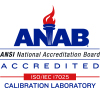
The food, pharmaceutical and automotive industries are very different, but they all have one thing in common; set standards for ensuring that fundamental requirements are met. You may have seen the stamp of approval on food products and medications we consume. But how often do we pay attention to the safety regulations on the vehicles we drive on a daily basis? In all actuality, the automotive industry is the most regulated industry in the world.
Driven by the number of recalls in the past decade, the Automotive Industry Action Group (AIAG) published the CQI (Continuous Quality Improvement) standards. CQI-9 Heat Treatment System Assessment was designed to provide continual improvement, prevent defects, as well as reduce variations and waste in the supply chain.
The self-assessment of the heat treatment system must be carried out at least once a year. According to the AIAG’s Heat Treat Work Group, applying the CQI-9 heat treat system assessment will help suppliers identify areas within their processes that need improvement including spills, recalls and warranty claims. The CQI-9 standard is now an ISO/TS 16949 customer requirement for automotive suppliers worldwide who purchase or provide heat treating services. In compliance are automakers such as Ford, General Motors and DaimlerChrysler.
Heat treatment processes determine the behavior and properties of finished parts including engine and steering components, gear boxes, axles, drive shafts and injection systems. These are all important vehicle parts that must be manufactured perfectly to ensure our safety on the road. That’s why MadgeTech offers a variety of solutions to validate that heat treatment processes comply with CQI-9 standards.
MadgeTech’s Titan S8 and OctTCTempV2 data loggers are ideal for measuring and recording extreme temperatures associated with hardening and tempering heat treatment processes. Equipped with eight channel inputs for thermocouple connections, these data logging systems can provide temperature readings inside specialized furnaces.






